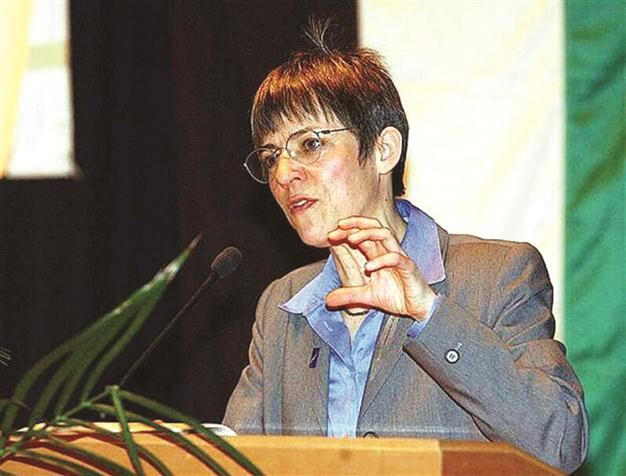Anti-corruption watchdog ends relations with FIFA
KIEV - The Associated Press

Sylvia Schenk says she was ‘astonished’ that FIFA rejected TI’s reform offers.
Global anti-corruption watchdog Transparency International has ended its working relationship with FIFA because past allegations of wrongdoing in world football won’t be investigated.
Sylvia Schenk, TI’s sports adviser, said yesterday she was “just astonished” that its conditions for joining a FIFA panel overseeing anti-corruption reforms were not accepted.
Schenk told The Associated Press that TI had insisted that panel members should be unpaid and be given the go-ahead to re-examine old scandals, but that FIFA did not agree to those requirements.
“They neglected our recommendations,” Schenk said in a telephone interview. “I can’t understand it. I’m just wondering what happened from one day to another. ... It is all the better that we are not a member of it.”
FIFA declined to comment yesterday.
Schenk and Swiss bribery expert Mark Pieth have advised FIFA this year since President Sepp Blatter pledged zero tolerance of corruption after a series of scandals surrounding World Cup bidding contests and the election campaign of his only challenger Mohamed bin Hammam.
Pieth gave his first news conference on Nov. 39 as paid chairman of the Independent Governance Committee, which will coordinate reform proposals made by three other task forces appointed by FIFA.
Pieth ruled out investigating previous scandals, though he acknowledged they should be examined.
“If I’m looking at the future, I cannot be the adviser about what happened in the past,” Pieth told the AP at FIFA headquarters in Zurich.
Blatter has been under pressure to improve FIFA’s battered image after four members of his 24-man executive committee were banned or resigned in the past year following allegations made during bidding for the 2018 and 2022 World Cup, and his own re-election.
When asked if the decision to award those tournaments to Russia and Qatar should be studied again, Blatter told a German newspaper this month that it could happen if Schenk or Pieth advised FIFA it was necessary.
“For us, it is essential to look into the past and get into the allegations,” Schenk said yesterday.
Transparency International rules prohibit signing contracts to be paid by clients, Schenk said.
She proposed that FIFA sponsors could have funded work by up to 18 panel members, whom Blatter is scheduled to identify at a Dec. 17 meeting in Tokyo.
“They don’t need to have a contract, they just need remuneration for their expenses,” Schenk said.
